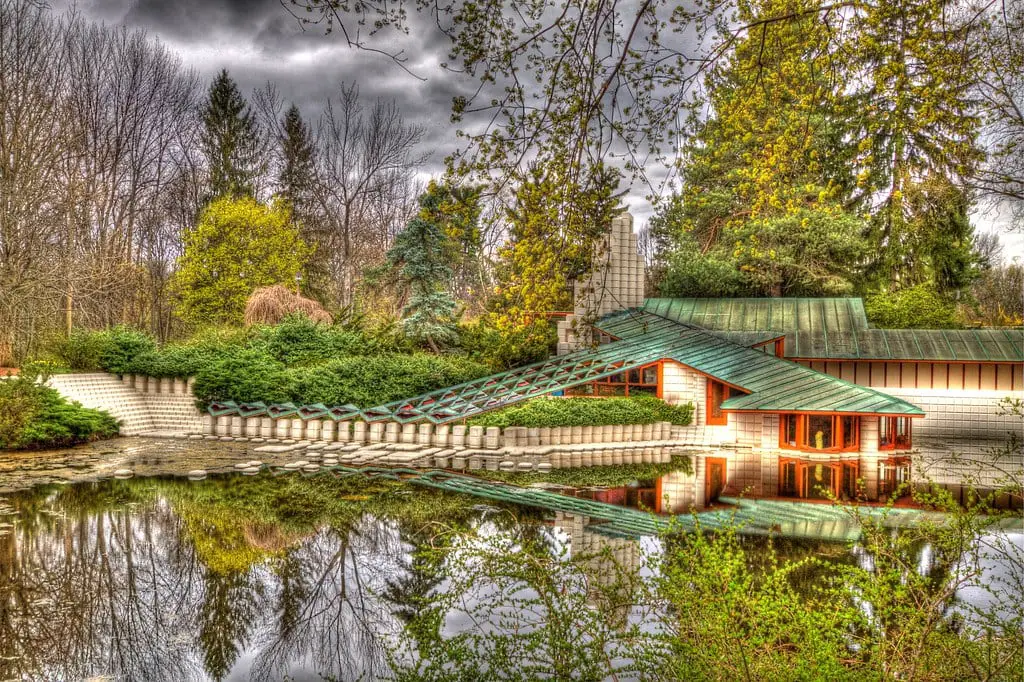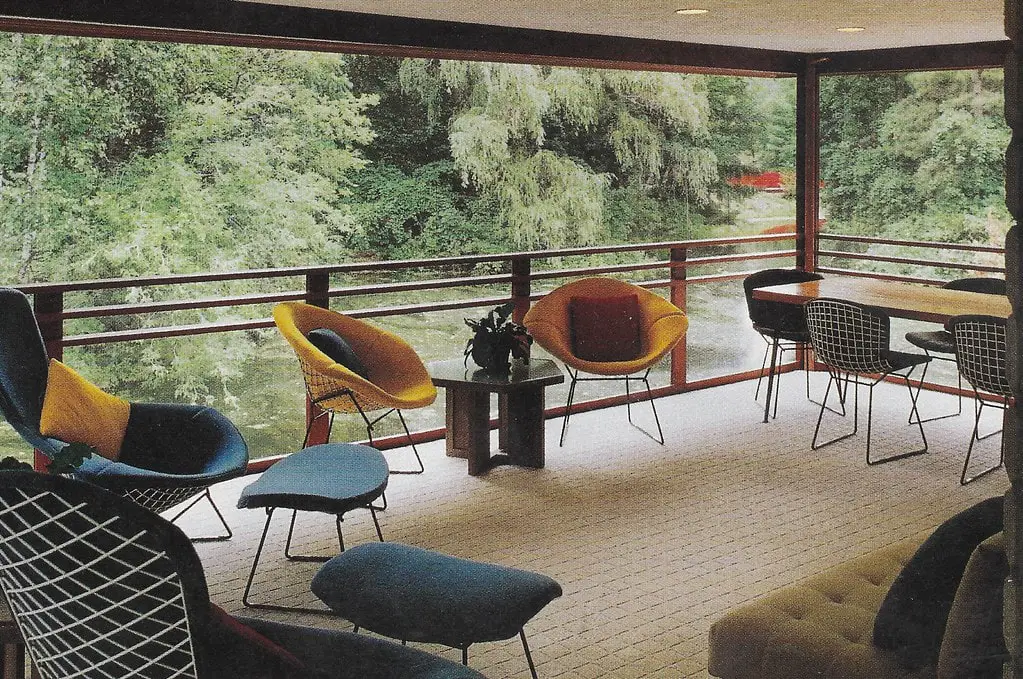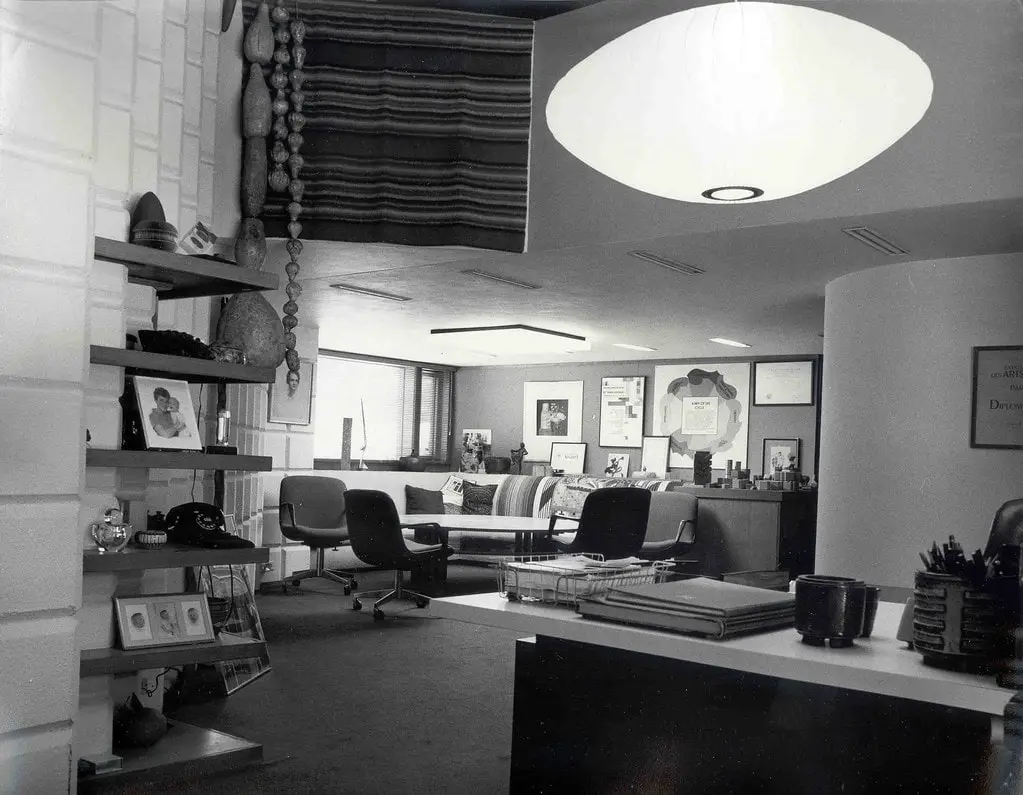Exploring the Alden B. Dow Home and Studio: A Legacy of Architectural Innovation
Nestled in the heart of Midland, Michigan, the Alden B. Dow Home and Studio stands as a beacon of architectural innovation and creativity. Designed by the visionary architect Alden B. Dow, this remarkable structure is more than just a building; it’s a testament to a lifetime of architectural exploration and excellence.
The Architectural Vision of Alden B. Dow
Alden B. Dow, born in 1904, embarked on a journey that would leave an indelible mark on architecture. His formative years were spent under the guidance of some of the most influential figures in the field.
After completing his education at the prestigious Columbia School of Architecture in 1931, Dow’s architectural vision began to take shape. This period was crucial in molding his design ethos, heavily influenced by his eight-month apprenticeship in 1933 at Taliesin, the renowned school established by Frank Lloyd Wright.
Dow’s architectural philosophy was deeply rooted in the principles he absorbed from Wright. He believed in creating functional and harmonious spaces with their natural surroundings.
This approach was revolutionary at the time and set Dow apart from his contemporaries. His designs were characterized by a keen attention to detail, a bold use of materials, and an overarching commitment to integrating buildings with their environment.
One of the hallmarks of Dow’s work was his innovative use of materials and construction techniques. His exploration into these areas began earnestly after his apprenticeship. In 1935, Dow patented a novel construction material known as “Unit Blocks.”
These blocks were not only functional but also aesthetically pleasing, allowing Dow to create structures that were both sturdy and visually striking. The Unit Blocks were made from cinders, a byproduct from the furnaces of Dow Chemical Company, founded by his father, Herbert H. Dow. This was a pioneering example of sustainable design, repurposing industrial waste into a building material.
Dow’s work reflected his belief in architecture as a form of art that could enhance human experience. His designs were not just buildings; they were carefully crafted environments that aimed to elevate the everyday lives of their occupants.
This philosophy resonated throughout his career as he designed numerous homes, schools, and community buildings, each embodying his unique approach to architecture.
The Alden B. Dow Home and Studio, constructed between 1934 and 1940 in Midland, Michigan, is a testament to his architectural vision. This masterpiece was Dow’s residence and architectural laboratory, where he experimented with design concepts and materials.
The Home and Studio vividly embodies his philosophy, blending seamlessly with the surrounding landscape and incorporating innovative design elements ahead of their time.
As a destination for architects, students, and enthusiasts, the Alden B. Dow Home and Studio continues to inspire and educate. It remains one of the key things to do in Midland, Michigan, attracting visitors worldwide eager to experience Dow’s architectural genius firsthand.
The legacy of Alden B. Dow is not just in the structures he created but also in the ideas he fostered, which continue to influence the field of architecture to this day.

The Birth of a Masterpiece: Constructing the Home and Studio
The journey to create the Alden B. Dow Home and Studio began in 1934, a challenging period marked by the Great Depression. Despite the economic hardships, Dow embarked on this ambitious project, leveraging his unique vision and available resources.
The initial phase of the studio was completed in 1935, followed by a second studio in 1936, culminating in 1937. This crucial period laid the foundation for a remarkable blend of architectural innovation and practical design.
The construction of the Home and Studio took place in Midland, Michigan, a community less impacted by the Great Depression due to the presence of Dow Chemical Company.
This company, founded by Dow’s father, Herbert H. Dow, provided a stable economic backdrop in an otherwise tumultuous time. The Dow family’s involvement in the community and the company’s success significantly enabled Alden B. Dow to pursue his architectural endeavors.
The Home and Studio’s design was groundbreaking, featuring elements ahead of time. The use of Unit Blocks, patented by Dow in 1935, was a key feature. These blocks were both a structural and aesthetic component, allowing Dow to experiment with form and function.
The integration of the studio with the natural environment, particularly the surrounding pond, showcased Dow’s commitment to organic architecture. This approach involved building a structure and creating a living space that coexisted harmoniously with nature.
A Blend of Function and Aesthetics: Design Elements
Dow’s design for the Home and Studio was a masterclass in organic architecture. The building was not just placed in the landscape but a part of it.
The surrounding pond, from which the studio emerges, is a prime example of this integration. This design choice was not merely aesthetic but a deliberate effort to blur the lines between the built environment and the natural world.
The Home and Studio is notable for its vibrant colors and diverse materials. Dow’s choice of colors was influenced by the natural surroundings, aiming to create a space that felt alive and dynamic.
The materials used, from the innovative Unit Blocks to the expansive glass windows, were chosen for their ability to enhance the building’s connection with its environment. These elements combine to create a functional and visually stunning space.
The Home and Studio’s design reflected Dow’s architectural philosophy. The building was more than a structure; it was an experience. The use of diverging angles, the interplay of light and shadow, and the seamless transition between indoor and outdoor spaces allowed a building to be seen and felt. This approach was revolutionary and set a new standard for architectural design.

National Recognition and Historical Significance
1989, a significant milestone was achieved when the Alden B. Dow Home and Studio was declared a National Historic Landmark. This prestigious recognition was a testament to Dow’s creation’s unique architectural value and historical importance.
Additionally, the Home and Studio was honored with the Paris Prize for Residential Architecture in 1937, further solidifying its status as an architectural marvel.
The Alden B. Dow Home and Studio’s inclusion in the National Historic Landmark registry placed it among the most esteemed architectural sites in the United States.
Its innovative design and construction during the challenging times of the Great Depression highlighted Dow’s ingenuity and resilience. The Home and Studio has since become an integral part of American architectural history, representing a significant period of innovation and creativity in the 20th century.
Alden B. Dow’s influence extends far beyond his Home and Studio walls. His approach to integrating architecture with the natural environment and his innovative use of materials have inspired generations of architects and designers. Dow’s legacy is evident in the continued study and admiration of his work, which remains relevant and influential in contemporary architectural discourse.
The Home and Studio Today: Tours and Educational Programs
Today, the Alden B. Dow Home and Studio is open to the public, offering guided tours that provide an immersive experience of Dow’s architectural genius.
Visitors can explore the unique spaces, observe the intricate interplay of light and materials, and gain insights into Dow’s design philosophy. The tours are a journey through a physical space and a voyage into the mind of one of the 20th century’s most innovative architects.
The Home and Studio is an educational hub offering programs that delve into various aspects of architecture, design, and Dow’s specific contributions to the field. These programs cater to a wide audience, from architecture students and professionals to enthusiasts and the general public.
The Home and Studio’s commitment to education reflects Dow’s belief in the power of architecture to inspire and educate.
The Alden B. Dow Home and Studio regularly hosts events and exhibitions that showcase aspects of Dow’s work and broader architectural themes. These events provide a platform for discussing, learning, and appreciating architectural heritage.
They also connect the community with the rich history and ongoing relevance of the Home and Studio, ensuring that Dow’s legacy continues to engage and inspire new generations.

Preserving the Legacy: Conservation and Community Engagement
Keeping the Alden B. Dow Home and Studio involves meticulous care and attention to detail. Conservation projects are regularly undertaken to maintain the integrity and original vision of Dow’s designs.
These efforts are supported by various organizations and foundations dedicated to preserving historical landmarks. Authentic materials and adherence to Dow’s construction techniques are pivotal in these conservation efforts.
The Alden B. Dow Home and Studio plays a significant role in the Midland community. It serves not only as a historical site but also as a center for cultural and educational activities.
The Home and Studio hosts various community events throughout the year, including architectural workshops, local art exhibitions, and public lectures on design and architecture. These events foster a deeper appreciation of Dow’s work and encourage community involvement in preserving local heritage.
In recent years, the Home and Studio has undergone several restoration projects to repair and restore various aspects of the property. These projects have included refurbishing original furnishings, restoring the iconic Unit Blocks, and maintaining the surrounding landscape. Each restoration project is committed to preserving Dow’s original design’s authenticity and historical significance.
The Home and Studio in Contemporary Culture
The Alden B. Dow Home and Studio has been featured in various media and literary works, highlighting its architectural significance and historical value.
Documentaries, architectural journals, and books have explored the unique aspects of Dow’s design, offering insights into his creative process. These features have helped to bring the Home and Studio to a wider audience, extending its influence beyond the architectural community.
Dow’s innovative approach to architecture, exemplified by the Home and Studio, inspires modern architectural design. His integration of natural elements, use of sustainable materials, and focus on functional yet aesthetically pleasing spaces resonate with contemporary architectural trends.
The Home and Studio serves as a model for architects and designers seeking to blend creativity with environmental consciousness.

The Alden B. Dow Home and Studio remains a dynamic and evolving landmark. Recent developments include the introduction of virtual tours, allowing people worldwide to experience Dow’s masterpiece digitally.
The Home and Studio has also been involved in collaborative projects with architectural schools and institutions, fostering a new generation of architects who draw inspiration from Dow’s work.
